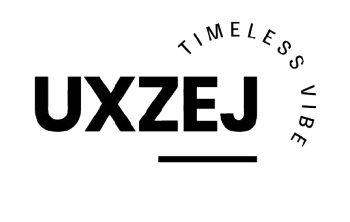Introduction
Supply Chain Transparency: Definition and Significance
Supply chain transparency is crucial for ensuring the integrity and efficiency of the supply chain process. It involves having clear and accessible information about the origins, handling, and quality of products.
Conventional Issues in Supply Chains
Traditional supply chains often suffer from inefficiencies, fraud, and lack of traceability, which can lead to significant operational challenges and risks.
Blockchain Technology as a Solution
Blockchain technology offers a potential solution by providing a transparent, immutable ledger that enhances visibility and accountability throughout the supply chain.
Introduction to Blockchain Technology
What is Blockchain?
Blockchain is a distributed ledger technology that records transactions across a network of computers in a secure and tamper-proof manner.
Key Components
- Blocks: Units of information that include transaction data, timestamps, and cryptographic hashes.
- Chains: The linking of blocks to form a continuous and unbroken ledger.
- Nodes: Computers or devices in the network that maintain a copy of the ledger and validate transactions.
- Ledgers: Comprehensive records of all transactions across the network.
How Blockchain Ensures Data Integrity and Security
Blockchain ensures data integrity through cryptographic hashing and consensus mechanisms, making it nearly impossible to alter recorded information without network consensus.
Transparency in Supply Chains
Common Issues in Supply Chains
- Fraud: Misleading claims about product origins or quality.
- Inefficiency: Delays and errors due to lack of transparency.
- Lack of Traceability: Difficulty in tracking products from origin to end consumer.
Impact of Poor Supply Chain Transparency
- For Businesses: Increased costs, legal liabilities, and damage to brand reputation.
- For Consumers: Reduced trust in product quality and safety, potentially leading to health risks.
Examples of Supply Chain Failures
- Food Contamination: Delayed recalls of contaminated food products.
- Counterfeit Goods: Issues with verifying the authenticity of luxury items and pharmaceuticals.
How Blockchain Improves Supply Chain Transparency
Real-Time Data Sharing and Accessibility
Blockchain enables real-time updates and information sharing across the supply chain, improving coordination and response times.
Immutable Records and Audit Trails
Blockchain creates an unchangeable record of all transactions, providing a permanent audit trail that enhances accountability.
Increased Traceability and Tracking of Provenance
The technology allows for detailed tracking of products from their origins through every stage of the supply chain, ensuring adherence to quality and ethical standards.
Blockchain in Supply Chain Case Studies
1. Food Industry: Walmart and IBM’s Food Trust
- Problem: Contamination and recall issues.
- Blockchain Solution: Enhanced traceability from farm to store.
- Results: Faster recalls and improved safety.
2. Luxury Goods: De Beers and the Diamond Industry
- Problem: Conflict diamonds and authenticity issues.
- Blockchain Solution: Verification of ethical sourcing and authenticity.
- Results: Increased consumer confidence and market integrity.
3. Pharmaceuticals: Medi Ledger Project
- Problem: Counterfeit drugs and regulatory compliance.
- Blockchain Solution: Secure tracking and verification.
- Results: Reduced counterfeiting and improved compliance.
Blockchain Implementation in Supply Chains
Steps for Adoption
- Initial Assessment: Identify areas where blockchain can add value.
- Selection of Platform: Choose a suitable blockchain platform (e.g., Ethereum, Hyperledger Fabric).
- Integration: Implement blockchain technology within existing systems and processes.
Challenges and Considerations
- Cost: High implementation and infrastructure costs.
- Scalability: Ability to handle transaction volumes.
- Interoperability: Integration with other technologies and systems.
Best Practices for Seamless Implementation
- Partner Collaboration: Work closely with partners for smooth integration.
- Focus on Data Quality: Ensure accuracy of data entered into the blockchain.
- Monitoring and Evaluation: Regularly assess the performance and effectiveness of the blockchain solution.
The Future of Blockchain in Supply Chain Management
Upcoming Trends
- Smart Contracts: Automate and enforce agreements within the supply chain.
- IoT Integration: Enhance real-time tracking and data collection.
- AI and Machine Learning: Analyze blockchain data for insights and optimization.
Potential Developments
- Increased Adoption: Broader use of blockchain across various industries.
- Interoperability Standards: Development of standards for better integration among blockchain systems.
Long-Term Impact
Blockchain is set to revolutionize supply chain management by offering unprecedented transparency, efficiency, and security, shaping the future of global trade.
Conclusion
Summary of Key Points
Blockchain technology provides a transformative solution to the challenges of supply chain transparency, offering a secure and transparent method of tracking and verifying transactions.
Transformative Potential of Blockchain
The ability of blockchain to enhance visibility, traceability, and accountability promises significant improvements in supply chain management.
Embracing Blockchain Technology
Companies that adopt blockchain technology early will gain a competitive edge in achieving supply chain transparency and ensuring long-term success.

